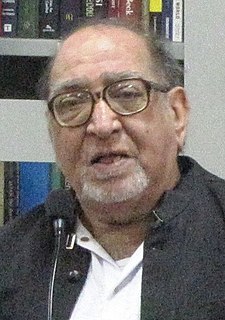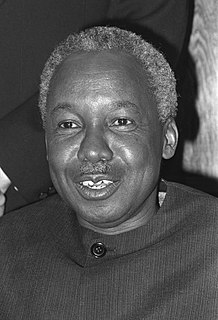A Quote by Friedrich August von Hayek
A society that does not recognise that each individual has values of his own which he is entitled to follow can have no respect for the dignity of the individual and cannot really know freedom.
Related Quotes
But the individual was not a tool for something. He was the maker of tools. He was the one who must build. Even for the best purpose it is criminal to turn an individual into simply a means for some ultimate end. A society in which the dignity of the individual is destroyed cannot hope to be a decent society.
Freedom is necessary for two reasons. It's necessary for the individual, because the individual, no matter how good the society is, every individual has hopes, fears, ambitions, creative urges, that transcend the purposes of his society. Therefore we have a long history of freedom, where people try to extricate themselves from tyranny for the sake of art, for the sake of science, for the sake of religion, for the sake of the conscience of the individual - this freedom is necessary for the individual.
The strength of an individual is not in his extreme freedom and libertine lifestyle, but in the stalwartness of his character and his moral vigor. The society is made of individuals. What is true for an individual is also true for the society. A society that is not founded on moral values is doomed to fall.
The freedom of an individual depends upon that individual's freedom to alter his considerations of space, energy, time and life and his roles in it. If he cannot change his mind about these, he is then fixed and enslaved amidst barriers such as those of the physical universe, and barriers of his own creation. Man thus is seen to be enslaved by barriers of his own creation. He creates these barriers himself, or by agreeing with things which hold these barriers to be actual.
Having come into contact with a civilization which has over-emphasized the freedom of the individual, we are in fact faced with one of the big problems of Africa in the modern world. Our problem is just this: how to get the benefits of European society - benefits that have been brought about by an organization based upon the individual - and yet retain African's own structure of society in which the individual is a member of a kind of fellowship.
Silicon Valley tends to believe in the individual who creates a small group and does something big. Democracy is always frustrating, but it creates a society that, for example, allows us to invest in each other's kids, to have public education, to have both a greater society and individual freedom for creating businesses.
The insistence on truthfulness does not disturb the freedom of the individual. The social obligation implied in Satyagraha turns the freedom of the individual into moral freedom. An atheist is free to say or to do what he likes, provided he does what he says and says what he does. So, in the context of social relations, the freedom of the individual is moral freedom.
First of all, although men have a common destiny, each individual also has to work out his own personal salvation for himself in fear and trembling. We can help one another to find the meaning of life no doubt. But in the last analysis, the individual person is responsible for living his own life and for "finding himself." If he persists in shifting his responsibility to somebody else, he fails to find out the meaning of his own existence. You cannot tell me who I am and I cannot tell you who you are. If you do not know your own identity, who is going to identify you?
Reason cannot desire for man any condition other than that in which not only every individual enjoys the most absolute, unbounded freedom to develop himself out of himself, in true individuality, but in which physical nature, as well, need receive no other shaping by human hands than that which is given to her voluntarily by each individual, according to the measure of his wants and his inclinations, restricted only by the limits of his energy and his rights.
True freedom is not advanced in the permissive society, which confuses freedom with license to do anything whatever and which in the name of freedom proclaims a kind of general amorality. It is a caricature of freedom to claim that people are free to organize their lives with no reference to moral values, and to say that society does not have to ensure the protection and advancement of ethical values. Such an attitude is destructive of freedom and peace.





































